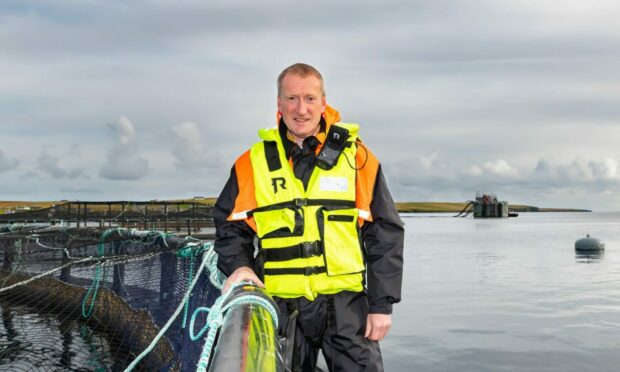Nicola Sturgeon is being urged to use £10 million of the fees paid by salmon farms to help solve a housing crisis in the Highlands and Islands.
Tavish Scott, chief executive of Salmon Scotland, said the money could “turbocharge” investment in badly-needed homes in rural areas.
The proposal comes after the Scottish Government was criticised for failing to fully deliver promises to spend £30m on housing in communities across the Highlands and Islands.
Recently released figures show the Holyrood government invested less than £18m from the Rural Housing Fund and Island Housing Fund since 2016-17.
Salmon Scotland, the trade body for the nation’s farm-raised salmon sector, said its idea would dramatically increase investment.
The industry soon expects to be paying more than £20m every year to various regulators and quangos, including Crown Estate Scotland.
Mr Scott suggests about half of that money should be set aside for rural housing.
The former Shetland MSP said: “This simple reform would support local economies and make rural communities even more attractive places to live and work.
Highlands and Islands housing ‘gravest problem’
“The shortage of housing is one of the gravest problems facing the population of the Highlands and Islands.
“Considerable housing investment is needed; but there is an easy way to turbocharge current levels of spending.
“Instead of going into general government spending, seabed rents paid by salmon farmers should be spent on new houses in Scotland’s coastal communities.”
The salmon sector is one of the largest private employers in many rural communities, but the shortage of housing is preventing key vacancies from being filled.
Depopulation over the next few decades is expected to threaten the existence of many rural communities in the north and west.
A recent survey found nearly half of all young people in the Highlands and Islands are planning to move away in the next five years.
Housing was a key problem, with 76% saying there are not enough affordable homes to rent or buy.
Mr Scott said: “Our companies want to support local housing with their cash. We want to help address Scotland’s housing crisis.
“We believe that local people who live closest to our farms should be the ones who benefit the most from the incredible success of Scotland’s world-renowned salmon sector.”
Colonsay affordable homes boost
It comes as the first affordable homes in more than two decades are being built on Colonsay where the population has declined.
Islanders and people who have left the island but want to move back will be given priority for the properties.
But it is also hoped potential new residents will apply and help boost the island’s population, which dropped to just 125 people.
Government investment
A Scottish Government spokesman said it had committed to delivering 110,000 affordable homes across Scotland by 2032 – at least 10% of them in remote, rural and island areas.
The spokesman said: “£3.5 billion funding is being made available in this parliamentary term towards the delivery of affordable homes which includes continued support of up to £30m towards the demand-led Rural and Island Housing Fund for communities and organisations not able to access traditional affordable housing funding.
“We are also developing a Remote, Rural and Islands Housing Action Plan, which will be published in the spring.
“Coastal communities across Scotland benefit annually from net revenues generated by the Scottish Crown Estate’s marine assets.
“These revenues are distributed to coastal local authorities according to a method agreed with Cosla and support the delivery of front-line projects and services to benefit our valued communities.”



Conversation